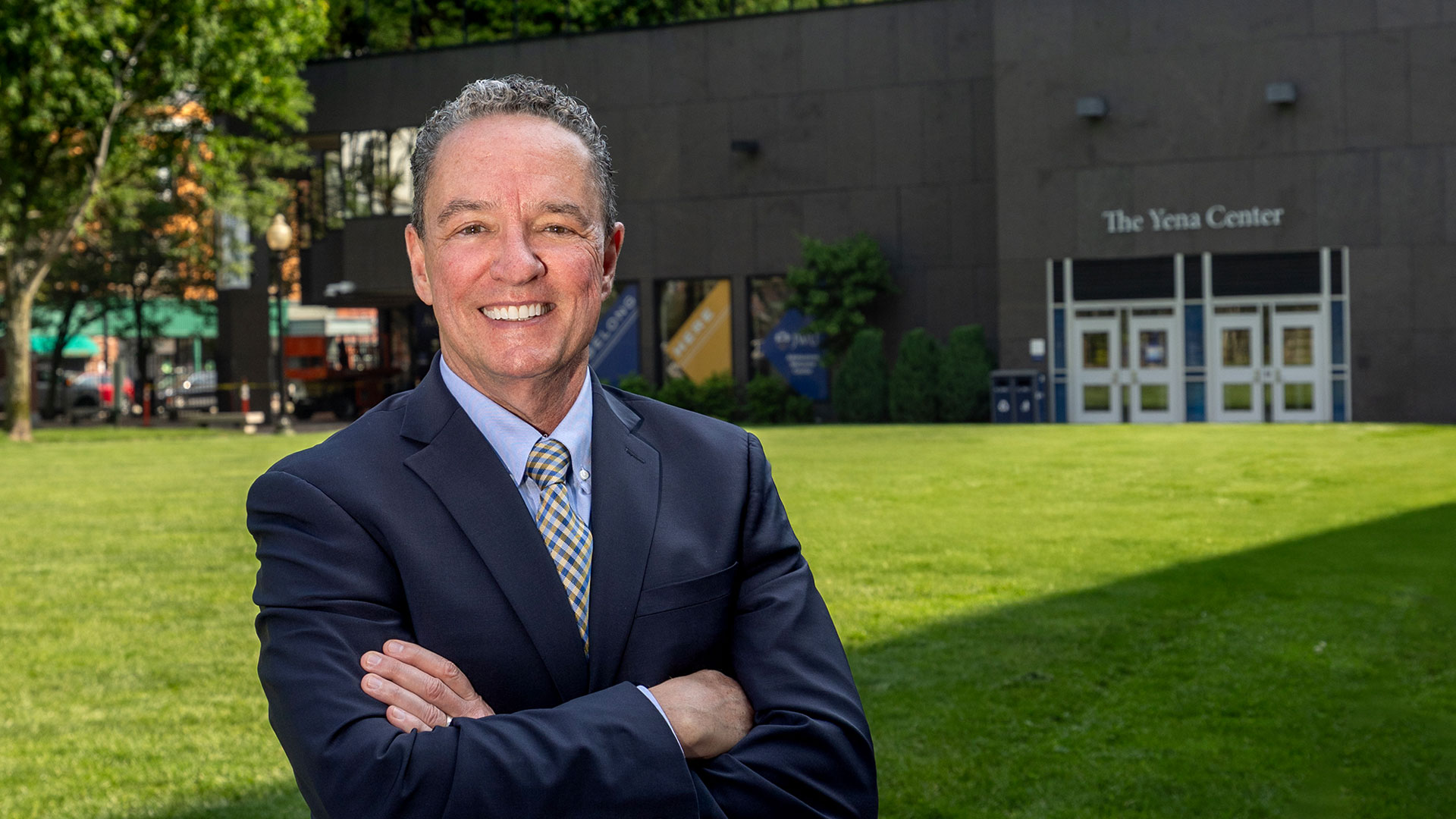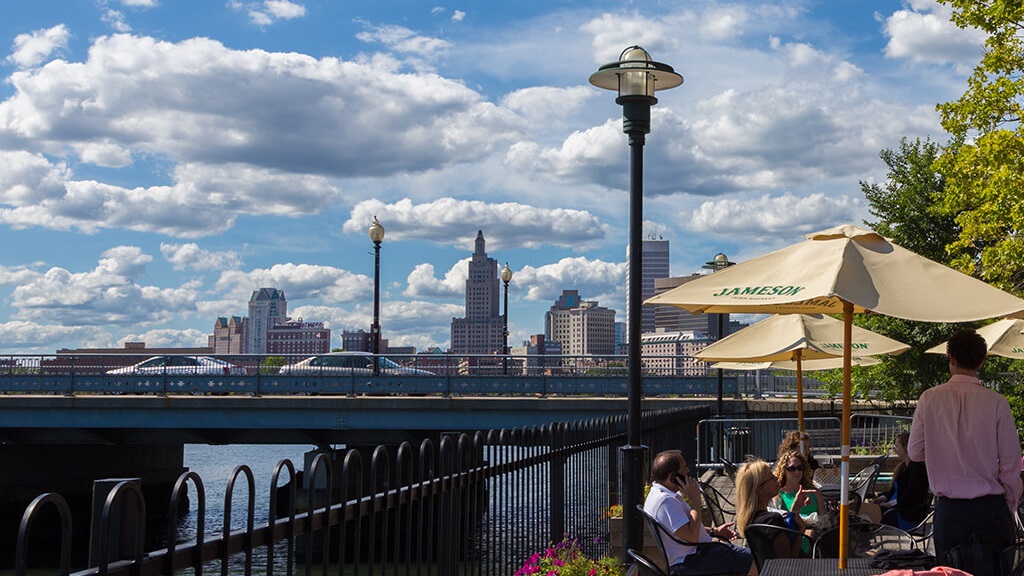JWU Prepares for Sustainable Futures
Since its inception on April 22, 1970, Earth Day has been celebrated around the country, including at Johnson & Wales University. This year, even during a pandemic, JWU’s Student Activists Supporting Sustainability (SASS) club members are organizing a tree planting on Gaebe Commons to celebrate Earth Day. But what if every day was Earth Day, the way that members of SASS and other student organizations find ways to be sustainable all year long, or how JWU’s Energy Conservation Office (ECO) never stops educating and empowering the JWU community to reduce their energy consumption? Several JWU faculty members share how JWU tirelessly promotes sustainability in academic classes every day – and how students can use their education now to forge careers tomorrow in a rapidly growing green industry.
Sustainable Food of the Future
Although JWU has just launched a new B.S. in Sustainable Food Systems in addition to a Culinary Sustainability minor, Chef and Associate Professor Branden Lewis of the College of Food Innovation & Technology (CFIT) notes that sustainability means much more than managing food waste. “The concept is about endurance, about living well today without compromising the needs of the future,” says Lewis. Sustainability intersects sourcing and social justice with tomorrow’s chefs and culinary leaders tasked with considering the people, animals, and environment that must all share this planet — and how to protect those resources with low impact on communities. JWU prepares students to advocate for sustainability through hands-on experience both in and out of the kitchen, including on farms and docks as they interact with growers and fishermen while actively preparing and providing food for those who are hungry. JWU’s unique program allows students to participate in project-based learning, training as critical thinkers to take on challenges that don’t even exist yet while working in the community on good food projects for which they can plan menus for change.
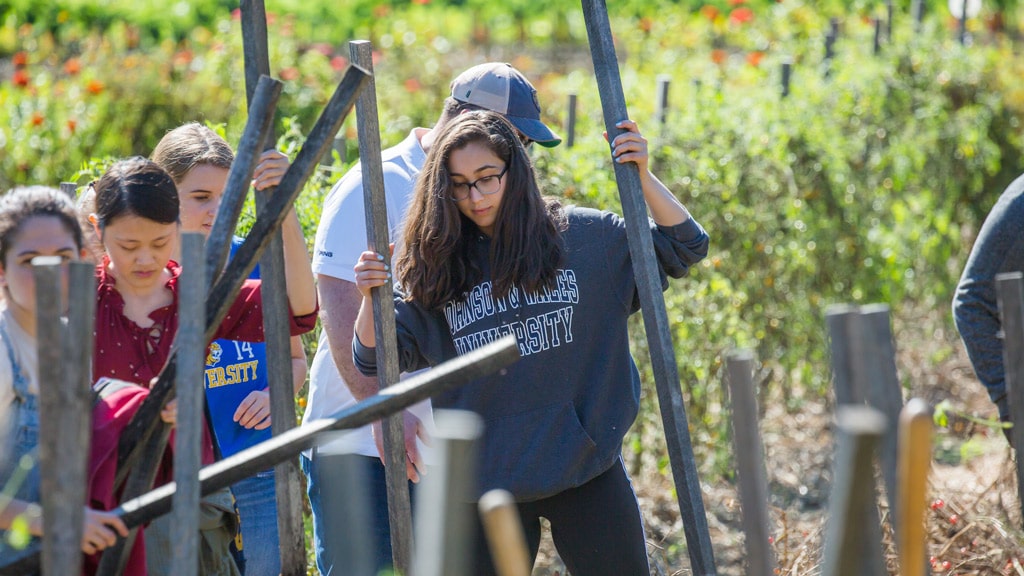
The days where chefs have food flown in from afar during any season are dwindling, says Lewis. Tomorrow’s chefs, conscious of carbon footprints and finite resources, are eager to collaborate with growers on local and in-season food for their menus. “They’re working with food systems instead of demanding from them,” says Lewis. JWU extends beyond other food sustainability programs to focus on food preparation in addition to agriculture and conservation, with dozens of kitchens and over 100 culinary and pastry instructors providing opportunities for students to study conscious cuisine, as well as providing opportunities to gather together growers, advocates, and community leaders to enjoy the food students planned and prepared as well as to discuss the products that inspired the menu.
Graduates of JWU’s sustainable food program will be equipped to navigate food law and policies in state government or non-profit positions or can apply their JWU studies to jobs in development and grant writing, sustainable supply chain management, or public health. Future farm-to-table chefs could own their own businesses or could run food service operations for schools or hospitals, sourcing locally and sustainably for those populations.
In addition, private companies such as Unilever and Nestlé are investing heavily in sustainable ventures and are seeking chefs, directors, and supply chain managers with sustainable experience and knowledge. “All of that’s growing as a major emphasis,” says Lewis, “including sustainable packaging.” The pandemic has revealed how many food systems rely on plastic to-go packaging, which is creating waste in landfills and discarded in the environment, and tomorrow’s leaders need to be able to plan for alternatives.
“We’re experiencing an Anthropocene, a new age where humankind is causing more environmental changes than any natural process,” says Lewis. “Students are coming to us wanting to help, and JWU’s food sustainability major and minor can prepare them for careers where they have the tools they need to navigate food systems with integrity and do something positive for the planet.”
Sustainable Operations
Outside of the kitchen and garden, JWU offers courses in Sustainable Hotel Support Operations, an M.S. in Global Tourism and Sustainable Economic Development, and a minor in Adventure, Sports and Sustainable Tourism – but sustainability goes far beyond hotels and recreation, says College of Hospitality Management Associate Professor Magnus Thorsson, due to the far reaches of environmental issues and climate change. “To remain relevant, JWU needs to keep sustainability as a central focus of our course work, assignments and student career planning,” says Thorsson.
Future graduates will need skills and knowledge to deal with impacts from a population nearing 7.7 billion of a planet able to sustain only 2-3 billion, and Thorsson joins his fellow faculty members in ensuring that conversations of sustainability are included in courses and classes. A calculation of resource use Thorsson teaches in one of his classes to help students calculate Kwh saved by switching lighting to LEDs or water saved by installing low-flow fixtures has become so applicable to post-graduate life, JWU alumni have been reaching out to him for the assignment, which they are using to calculate energy consumption at their places of business to formulate suggestions for their managers.
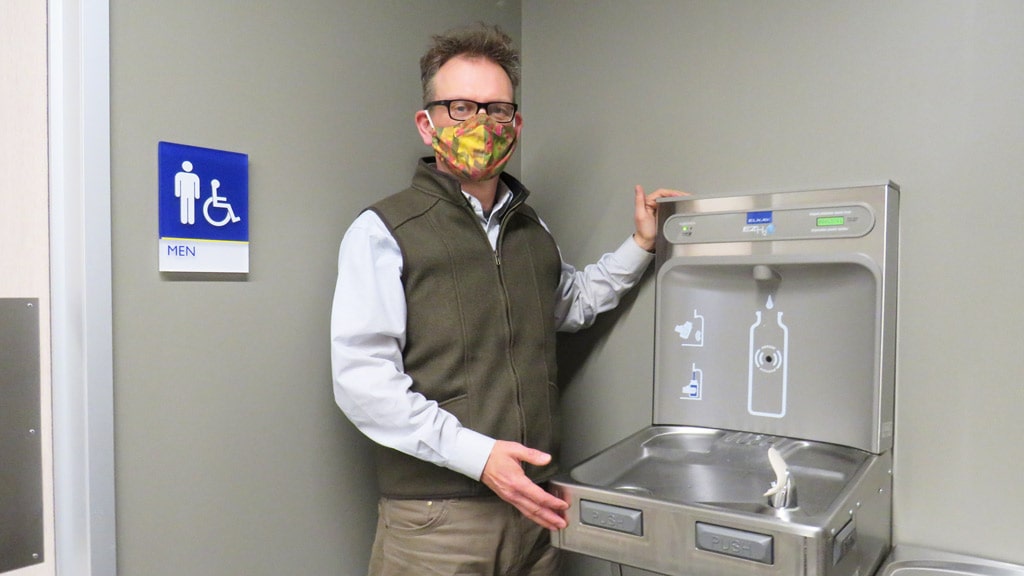
Jobs abound for graduates with knowledge of sustainability in operations. Last January, Governor Raimondo signed an executive order mandating Rhode Island to move towards 100% renewable energy by 2030. Green jobs in Rhode Island have already increased 74% across all sectors since 2014, while President Biden’s infrastructure proposal will provide 2.1 million green jobs across the nation. Between green energy, technology, and cannabis, sustainability is creating some of the hottest jobs in the market, and JWU is preparing future employees for those jobs by equipping students with an understanding of the impact of emphasizing sustainability in all components of the value chain of organizations and companies.
Thorsson notes that JWU College of Business courses in human resource management, operations management, entrepreneurship, international business, textile, hospitality, and more center conversations on climate change and social justice. Several courses also illuminate the importance of corporate social responsibility as a focus of good business strategy for companies students encounter such as Tesla, Patagonia, Hyatt, and Chipotle.
“Climate threat is growing and will be even greater for those with limited access to resource,” says Thorsson. “To excel in future careers, JWU students will need to know how to advocate for sustainability, and we’re having those conversations right now.”
Sustainable Design
Among the green jobs that would be generated in energy efficiency and renewable energy spaces are careers designing high efficiency vehicles, infrastructure, utility services and buildings as well as more sustainable products, packaging and toys.
Both Associate Professor Jonathan Harris and Associate Professor Walter Zesk in the College of Engineering & Design encourage students to consider the relationship products have with the systems surrounding them and incorporating that understanding into the product’s goals and objectives. “Product Design students study human factors and user-centered design, building an understanding of human capabilities and needs of both individuals and social groups,” says Zesk. “This understanding is a prerequisite for sustainable practice because it defines what should be sustained.”
In JWU’s ethical design studio, Product Design students are able to consider and test their understanding of our collective responsibilities to future societies, while the program allows them to develop toolsets to represent and model complex systems. Students are encouraged to question whether certain products are truly useful and how they could be designed to be renewable or at least long-term as opposed to disposable.
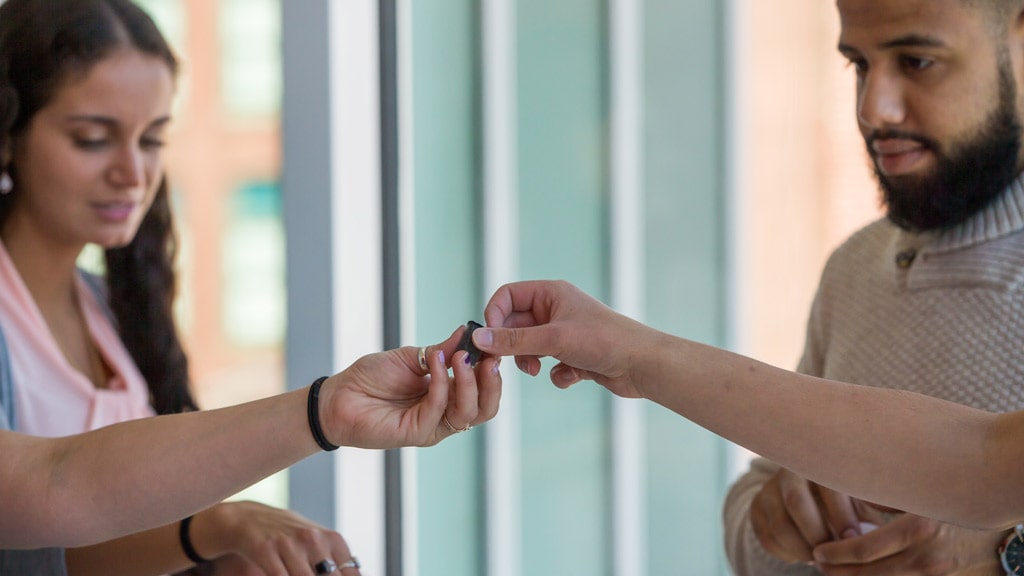
The more we see the harmful impacts of climate change and overpopulation, the more urgency for JWU faculty and students to use design and innovation to help sustain our planet. JWU design courses address sustainability from a systems standpoint, teaching about systems and ways they affect end product or parts of end products; a designer can gauge where to make effective changes. The idea, says Harris, is that in that system you look at a product through its full lifecycle and not just the initial sketch of a cool car or tool. Harris lives this concept daily, down to using refillable pens so running out of ink doesn’t mean adding plastic to our landfills, and he laments how our society has moved toward turnover and change in products and electronics rather than on well-made items that can last a lifetime and be handed down.
In teaching a systematic approach, Harris and Zesk enforce the idea that sustainable design encompasses everything from materials, such as exploring bioplastics or reducing the number of parts in a product or toy, to packaging, especially designing food delivery options that can withstand animals fats, to manufacturing energy use, to supply routes and delivery methods. Students who don’t want to invent new products can improve existing ones, or focus on things like planning new office spaces when more people are working remotely.
“How does the product get into the hands of consumers, and could it be done more locally?” asks Harris, noting that tomorrow’s designers are exploring different methods for enclosing products and foods to promote sustainability.
Since the pandemic began, the amount of food packaging and medical waste has grown worldwide, straining landfills and lands. JWU students are encouraged to explore design creatively, obtaining sustainable materials such as bamboo from Material ConneXion to manipulate as they experiment. JWU design students also master programs like SolidWorks so they can look at and change the environmental impact of what they’re designing, trying out different materials, designs, and suppliers. “Every design-oriented career path is an opportunity to pursue a sustainable agenda because every design project intervenes in and hopefully improves the associated systems,” says Zesk.
TOP PHOTO: JWU Providence students help glean kale and other produce during a visit to a farm in Exeter, Rhode Island. MIDDLE PHOTO: Associate Professor Magnus Thorsson poses in front of a water station that digitally counts the many thousands of bottles of water saved from shipping containers and landfills by students and employees refilling sustainably on campus. BOTTOM PHOTO: JWU Design students collaborate with JWU. Occupational Therapy students to create their ideal accessible coffee shop.

